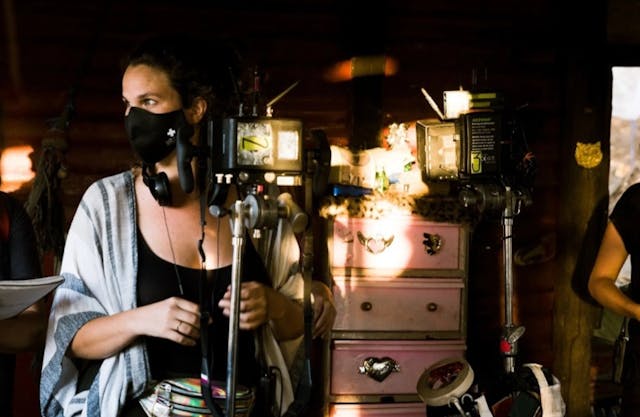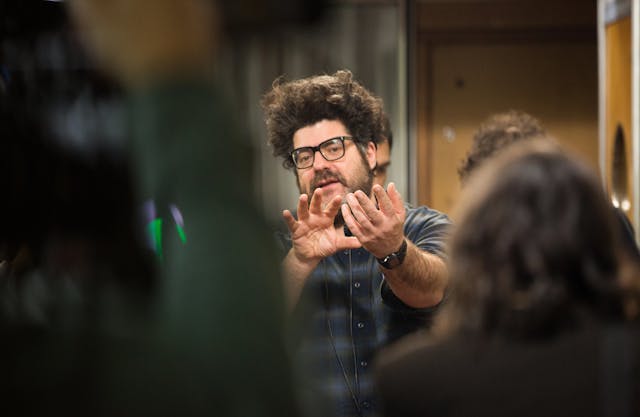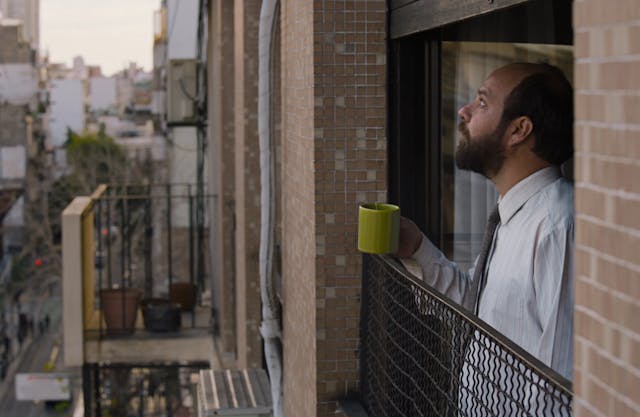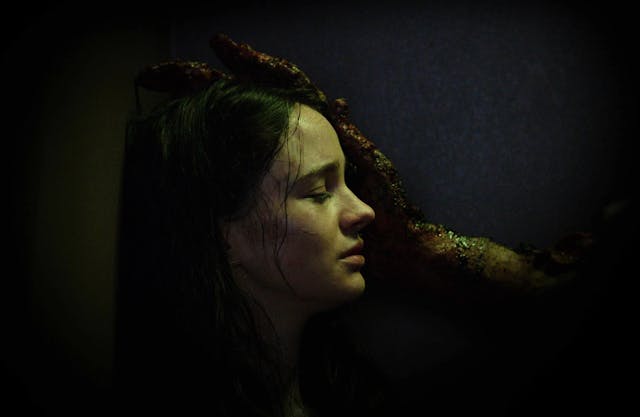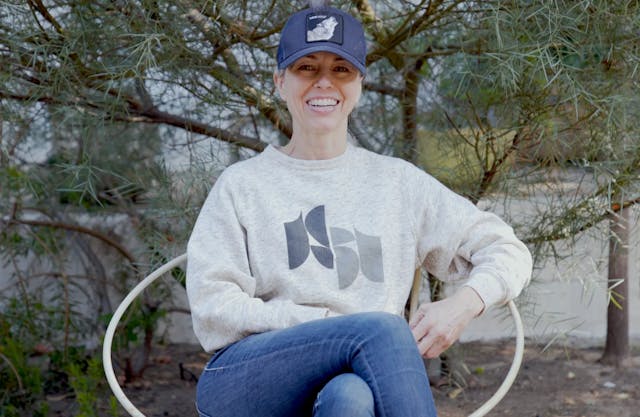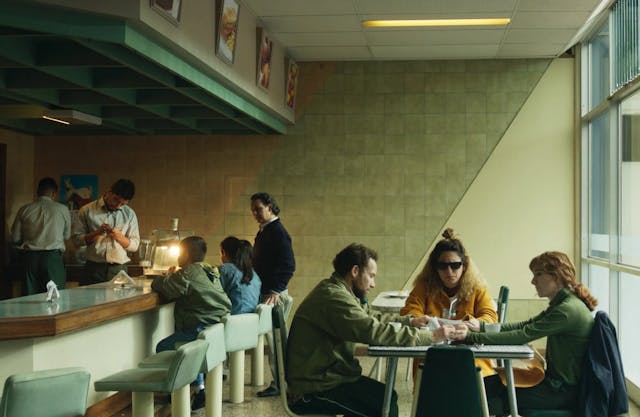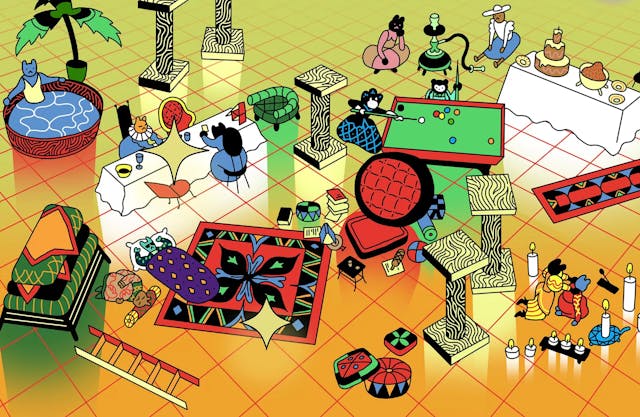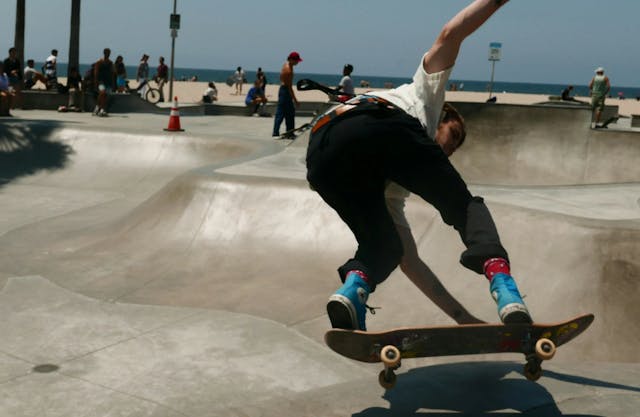Girl, Uninterrupted: Natalia Santa Investigates the Growing Pains of a Young Woman in "Malta"
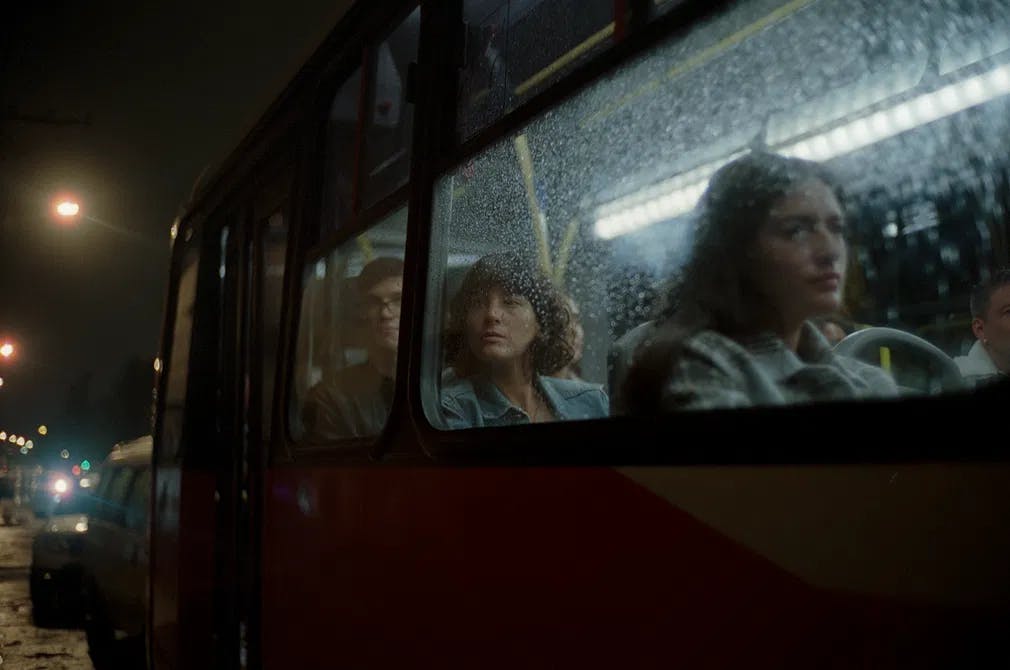
Long way to paradise: Estefanía Piñeres yearns to leave everything behind and escape to "Malta" / Photo courtesy of Cinema Tropical.
Seven years after premiering her feature film debut at the Cannes Film Festival, Colombian filmmaker Natalia Santa returns with a sophomore effort that brings you up close and personal with a young woman on the verge of a personal breakout — or perhaps a nervous breakdown. Mariana (Estefanía Piñeres) works at a call center, goes to college, and moonlights in nightclubs, picking random men for uncommitted sexual encounters. More than anything, she longs to escape to Malta.
The Mediterranean island nation beckons through the internet with the promise of happiness or at least some distance from her broken family. Santa's empathetic approach makes you feel like you know her. In the run-up to “Malta”’s premiere at the SXSW Film Festival, we spoke with Santa about the movie’s inspiration, her work with actors, how to navigate sex and violence during shooting, and why Latin American nations need to keep investing in cinema.
Any movie buff following Latin American cinema should make a note to get to know Santa's work. Our conversation has been translated from Spanish and edited and condensed for clarity.
Popflick: How did “Malta” begin its journey? Where did you find the seed of the history?
Natalia Santa: Several situations always come into play when you start creating something. My two children were born, and being a mother leads you back to your childhood. I wondered who I was as a daughter. And who was I, as a mother? How did I feel about fatherhood, motherhood, and family as a teen? All these questions led me to “Malta”’s story. It’s finally the story of a girl growing up in a broken family. She needs to grasp where she is coming from to understand why she is so pent up in leaving home and running away from her mother. I needed to be a mother to find this movie.
Popflick: Your previous movie, “The Dragon Defense,” was centered on three male characters. Now, you present a character study of a young woman. Does gender change your relationship with the material? Is it more personal now?
Natalia Santa: In a way, it does. I speak of the moment I lived when I wrote the script. However, I also think my writing journey depends on intimacy with the characters to reach their truth through their daily life. Many things come into play: their fears, their dreams, how they interact with others, their relationships, and their frustrations. Even though the three lead characters in “The Dragon Defense” were men, I worked them out from the same place. My reference is my life experience. That’s where I find the truth about those characters. So, those three men also speak of my fears, concerns, and questions. Well, the ones I had back in a particular moment!
Popflick: You have a lot of experience writing episodic television. What happens when you switch to a movie screenplay? How does your process change?
Natalia Santa: Everything changes! Writing for TV is a group effort; you do it for a client. A producer or team has already developed an idea, and they call you to join a group of writers. Everything done is at the service of a big idea, and many people provide input. The last word is not up to you. Everything is always being reevaluated according to production demands. It’s very different because my movies are my own. I’m the sole author. It’s a very solitary process; a lot of reflection comes into play, and it can take a lot of time from the first spring of an idea. It can take a whole year to reach the moment I sit down to write, and even then, I might not be very clear on what I’m writing.
Popflick: Mariana, your protagonist, is in every movie scene. It must have been very demanding on actress Estefanía Piñeres. How did you find her? How did you work with her?
Natalia Santa: It was a great fortune to find Estefanía and to work with her. She is a wonderful human, sensitive, smart, and very generous with the process and with her coworkers. I wanted to work with a woman who had some performing experience. Not necessarily on film or TV. It could have been a theater actress or a dancer. I needed someone who had had the experience of being exposed to an audience because we had nude scenes and intimate scenes. I did not want to work with somebody too vulnerable in this environment. She already needed to have the toolkit to perform such situations in a movie set. So, we started with actresses who had experience in theater or TV. I worked with casting director Rodrigo Trujillo. It was a long process, but he has a beautiful method to get what you want from each performer. We did not just send a scene and get it over with. We asked very specific questions about the character. For example, we would ask the girls testing out for Mariana, “Did you ever want to run away from home? Tell us what you feel at that moment. How was your relationship with your mother and your father?” We also asked about intimacy and their sentimental relationships. When Estefanía went through casting, she spoke of things that had much to do with the character. We were very surprised at the emotional similarities with Mariana’s characters. So, she remained in play until we realized it had to be her who played Mariana.
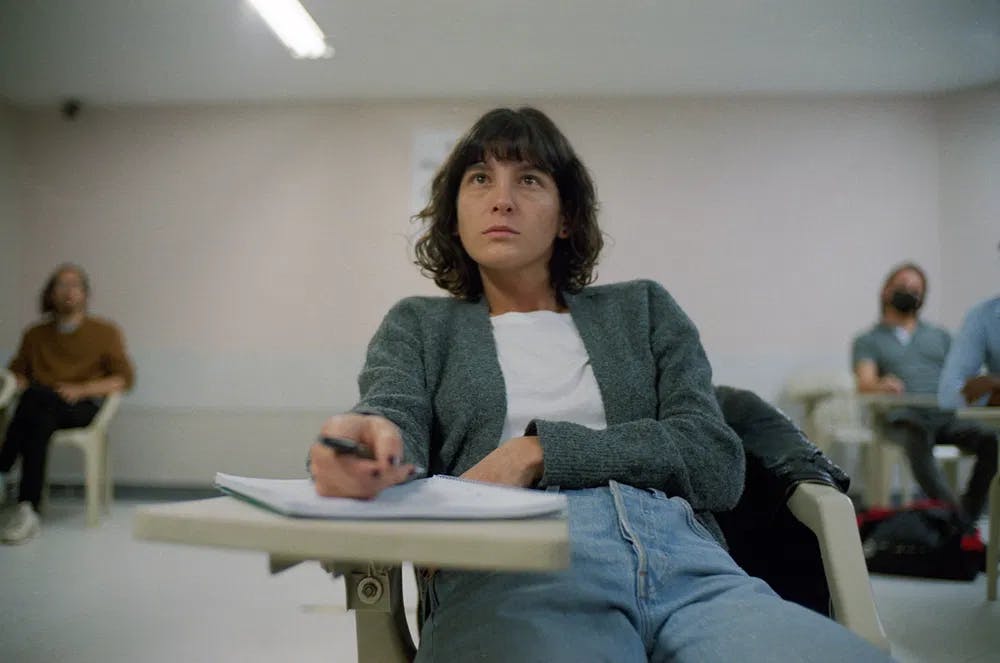
Class dismissed: Mariana (Estefanía Piñeres) coasts by her college classes in "Malta" / Photo courtesy of Cinema Tropical.
Popflick: Mariana represents a certain strain of Latin American youth. She is a post-millennial whose knowledge of the English language is supposed to be a kind of life support. She works in a call center and wants to go abroad. Mariana’s plan is more romantic than practical, but her peers want to leave their country. We see it in the large migration of young people to the USA and Europe. Isn’t it possible for this generation to find happiness at home?
Natalia Santa: That’s a very big question, and in the end, she has to find the answer. We must break up with our homes, families, and origins to discover who we are. At least, break up symbolically. To break off your shell, you need to leave home. It might entail moving to Australia or the other side of your hometown. Anyway you can, you need to understand who you are, putting some distance from your origin. There are many ways to do it. You can go at peace with it or kicking and screaming against it. Or just run away.
I feel Mariana’s attitude is a bit like that. She is always running away from herself, her mother, and her absent father, whom she does not recognize as the man who abandoned her. She is running away from the conflicts at home. So, she seeks out these one-night stands with unknown men because she is not interested in establishing relationships. She is in a constant state of fleeing. Every day, she runs away a little more. Her final escape will be to Malta.
Popflick: I felt the movie was very rich in portraying a family dynamic that is very pervasive in Latin American countries. In these countries, you have a multi-generation household, where power gets transferred gradually from parents to grown-up children. It’s partly an economic issue, partly cultural. How do you think American and European audiences will read this?
Natalia Santa: I don’t know. It’s a big question. This is a very Bogotanian picture of the character and the relationships. It might be a Latin American movie, but it does not speak of, say, the Caribbean. It is more Andean, and within Colombia, at least, that speaks of a very specific subset of family relationships, reactions, and energy. Bogotá is a cold city, mountain-bound. People are not exactly hostile but rather dry and straightforward.
Regarding multi-generational households, yes. We still live with our grandfathers, three generations under the same roof. We do it for economic reasons, but also cultural. It may be slowly changing, but we are still a society that keeps the elderly in our daily lives. Now, power is a strange thing. Grandfathers and grandmothers, fathers and mothers have their share. But then, by virtue of being male, the son enjoys some prerogatives and privileges not available to daughters.
Out of all these factors comes tension, plus the usual family strife…all these emotional wounds. I’m not sure how foreign audiences will read all of this. When we were developing the project, some would ask us, ‘Why Mariana doesn’t just go away, leave?’ Maybe such a thing is easier for them. Most leave home at 16, but it does not work like that in Colombia. She does not just leave because that’s how it goes here. She is not economically self-sufficient. Culture and tradition weigh a lot. Here, sons don’t leave the home so soon.
Popflick: "Malta" is very frank about showing intimacy and the nakedness of the bodies. In contrast, violence is mostly kept out of the camera’s range—the opposite of what movies usually do. How did you reach this creative decision?
Natalia Santa: I had a long discussion with myself and then with Estefanía. In the script, everything was in plain view, even the episode of sexual violence. When we were preparing the scene, we had an intimacy coordinator. She was there all the time, in rehearsals and during the shooting, in an ongoing conversation with us about what we wanted to tell, how, and how far to go. We concluded that it was not necessary to show it. I mean, the first hint is there, and to show the rest was not needed. We did not want to boast in the shock. We did not need to show it to tell what we wanted to tell. The process was to keep questioning ourselves. You return to the script and understand what you are looking for with that scene. Do you need it to tell your story, or is it gratuitous? Same with the sex scenes. You ask yourself, what do you want to prove with this, and how do you get around to it?

Breaking up the girl: Estefanía Piñeres and Emmanuel Restrepo engage in a strange courtship in "Malta" / Photo courtesy of Cinema Tropical.
Popflick: Now that the movie is done, how do you feel about it? Is it what you were looking for?
Natalia Santa:…it’s been such a long process. Six years have passed since I finished the script. The movie is alive, and it changes along the way. The script's first version is not the same as the last. You make peace with the changes along the different production stages. I’m happy with the movie, but you go through a process of mourning when you pass from script to shooting and from shooting to editing. You have to leave some things behind and realize your movie is not what you previously had in mind. What you have now is not what you had then. So, after all those periods of mourning, I’m happy with the final result. Now, the movie is like an independent entity. It creates its dynamic. When you see it, you now understand things you didn’t understand before and arrive at new conclusions. It’s a beautiful process and painful, too! It’s lovely because it never ends. And it’s never what you initially imagined.
Popflick: Like most projects done outside of Hollywood, your movie is a reality thanks to funds coming from various countries. Argentina, one of your sources, is now under the government of new president Javier Milei, who is making dramatic cuts in cultural budgets. How do you feel about that? Why should governments invest in culture?
Natalia Santa: I can speak about the Colombian experience, which I know best. Public funding allowed us to jumpstart an industry. Two decades ago, Colombian filmmakers produced ten movies a year. Thanks to public funding, we now make about 70 movies per year. Without that kind of support, there can’t be any production, where you still have no economic ecosystem. Argentina has become a major player in Latin America. Argentina and Mexico are the countries that make more Spanish-language movies. It’s thanks to public support that they have been able to create an industry that brings in millions.
Some may feel that funding films wastes money, but financing art is never a waste. Their richness is not just in the balance sheet. You are creating jobs, an economic activity. Furthermore, you are supporting a process of reflection on who we are and our countries. Cinema can be a very commercial product, but also an artistic expression that leads you to think about your society, your historical moment, or those in the past. This is basic for growth and development. It’s impossible to reduce cinema to money. And if you do, well, look at the United States. It’s a multimillion-dollar industry. We need to support and consolidate that industry. If we keep supporting it, it will grow.
Popflick: You are in the writers’ room of Netflix’s series adaptation of Gabriel Garcia Márquez’s “100 Years of Solitude.” When will we be able to see it?
Natalia Santa: I can’t say anything! Sorry! I can only share what’s already on social media. We have a great challenge, but we are working with a lot of respect for the material. We are being very detailed and careful so that the series is up par with the source.
Want to get an email when we publish new content?
Subscribe today
